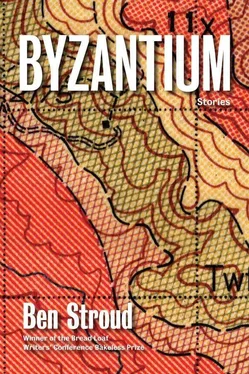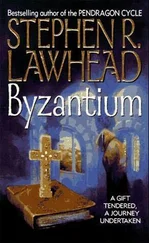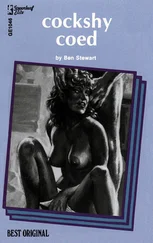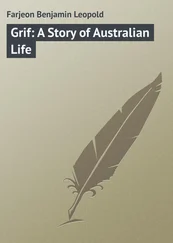“Do you still desire the biscuit?” I asked, watching as Timson cut the notes with great care. I saw before me sailors starving at the antipodes, children in need of precious nutriment. Must they suffer due to the whim of a fickle public? “Please tell me the meat purveyors have not gotten to you with their slanders.”
The Maria rocked and creaked ever so slightly in the harbor waters. Timson looked up from the notes. “The Lord spoke to me of the biscuit,” he said, and I hung on his words — so much hung on them! “He said I should feed my men by your bread and none other.”
I rejoiced, shook Timson’s hand, and bowed several times, not caring if he thought me a madman. Ready to complete the business, we went over the final agreement. Dr. Smith and I would provide Timson’s militia with the remaining meat biscuit, supplying the entire expedition, and in return we asked only two things. I requested that Timson write a testimonial to the biscuit’s goodness, and Dr. Smith wanted a banana plantation. Timson offered no objection, we both signed the contract, and it was done.
VIII
The Altar of Discovery
With my new plan for the box I was exuberant, despite the mocking of the city men. I instructed John to roll up the carpets and prepare the house for our long absence, and hired a reliable man, Hiram Wheelock, to open the Cooling Safe after the first frost, paying him five dollars in gold and promising him five more once he greeted us at the heat’s end. I also retained James Johnson, the cartwright, to do the services in the case of Hiram’s passing, and contracted with Levy the merchant to supply the ether. Twice a week he would deliver a new jug and note for me any variations shown by the gauges. The city was silent, every corner hung with death, and as I went about making my arrangements, I ran into Dr. Smith, with whom I had not spoken since the day I had first shown him the box. He took me aside and asked in hushed tones if I truly meant to go through with the freezing. When I said yes, he shook his head. “I have remained silent too long. Every man mourns in his own way, but this must stop!” I ignored his remonstrance, and he suggested I at least try a pig first. “Hog flesh is sound for experiment,” he said, but I slipped from his grasp and told him I needed no counsel.
Yet I did fear, briefly, that during our entombment the fever’s toll would mount higher than in seasons past, would take the whole city and leave no one to wake us, or that perhaps another hurricane would cross the island and wash the city along with the box into the bay. Still, enterprise requires risks. The death of one inventor and one slave boy was a small offering to lay at the altar of discovery, should such a misfortune occur.
IX
A Ceremonious Departure
The day Timson sailed for Honduras, I went down to the docks like everyone else. He had filled the steamer’s stores to the fullest with meat biscuit, leaving room only for the guns and his robes of state, fashioned from the old curtains of the Star Theater. A brass band played, people cheered, and Timson’s men lined up on the steamer and waved their hats over their heads in farewell.
The crowd pressed close as girls handed flowers up to the men, and after some minutes, in answer to cries from his admirers, Timson came to the railing and addressed us. “With this endeavor,” he said, shouting so all could hear, “we shall not only preserve our Union, we shall perform God’s work on this earth, fulfilling His holy plans for slave and free!”
We applauded, and several in the crowd shot off their guns in celebration as the steamer broke away from the wharf. Timson moved to the stern and raised his hands, and between the blasts of the ship’s horn, over the churn of the engine, we could hear him blessing our city. Everyone stayed, watching until the steamer had cleared the harbor and rounded the tip of the island. Then we let out another cheer and some, mostly children, ran across the island’s humped middle to the gulf, to watch the steamer pass into the broad waters. Soon she was beyond the horizon and all that could be seen was the last puff of smoke belched from her stack, grayish black on the gulf’s far edge, and then this too disappeared. I returned to the warehouse. Dr. Smith was already there, standing beside the table and looking out the window, his hands clasped behind his back. “Today I treated a man for the fever,” he said. “First of the season.” I turned my eyes to the floor, grimy near the stove, and said nothing. That night I fried us some of the biscuit — even after Timson’s men had taken all they could, we were left with above a thousand pounds.
X
In Which Dr. Smith Plays the Hero
The morning I had set for our confinement, I woke to find John gone. I called his name throughout the house and in every corner of the yard and heard only the echo of my own voice. I wondered if he had been stolen — in the midst of the fever there had been a rash of slave thefts, the stolen negroes turning up in the market at New Orleans — and then if he had run away. I had no time to investigate and, hoping the latter was the case, wished him good journey and readied myself for the box. I slipped the ring of Penelope’s hair over my finger, kissed it, and stepped into the yard. Dressed in a wool garment of my own design, I performed a series of exercises, bending at the waist and stretching my arms, then crouching and holding my hands at my hips, in order to even the blood for optimal freezing. I had not seen a soul all morning, yet as I was opening the box’s iron door, Dr. Smith came riding up. I hailed him, but he did not answer. Instead he leapt from his horse, bolted toward me, and gave me two hard punches in the jaw. The second one felled me.
“You goddamn fool,” he said when I woke. “Do you mean to kill yourself?”
I scrabbled toward the safe, but he held me down, and only then, as I spent myself in struggle against him, did I begin to see my madness. The suffering — I so wished to end the suffering!
XI
Despair
I spent the next weeks walking the island and dining with Dr. Smith, who had developed the habit of reading aloud from pamphlets on banana cultivation while at table. During the mornings I drafted letters trumpeting the biscuit’s success and our plans for renewed production, which I would post to various government agencies and newspapers of record once I had word from Honduras. Each day, awaiting this word, I twisted in currents of emotion, from hope to dread and back again, my only solace wandering the dunes and feeling the gulf breeze whip over me. At times I thought of slave ships putting in at Trujillo, to supply Timson’s new plantations. My heart fell at the vision, but was swiftly buoyed by another: the biscuit proved before the world.
Then, a month after his leaving to the fanfare of the city, we got news of Timson’s campaign. His men returned in rags, arriving in twos and threes on the ships of charitable captains, and told their stories in the saloons and on the docks. The Honduran army had made quick work of them, and after only a few days of jungle fighting Timson had been captured and hanged in the plaza at Comayagua. I caught one man on the wharf. He had a bandage on his head and would not answer any question, any hello or how are you. I followed him as he walked down to the water and along the beach, poking at the jetsam left by the last tide. Finally I clutched his arm.
“The biscuit?” I asked. “The biscuit?”
He fixed me with his good eye, sunken and glassy. “One half dumped in the bay,” he said, “the other half left in the jungle.”
Читать дальше











